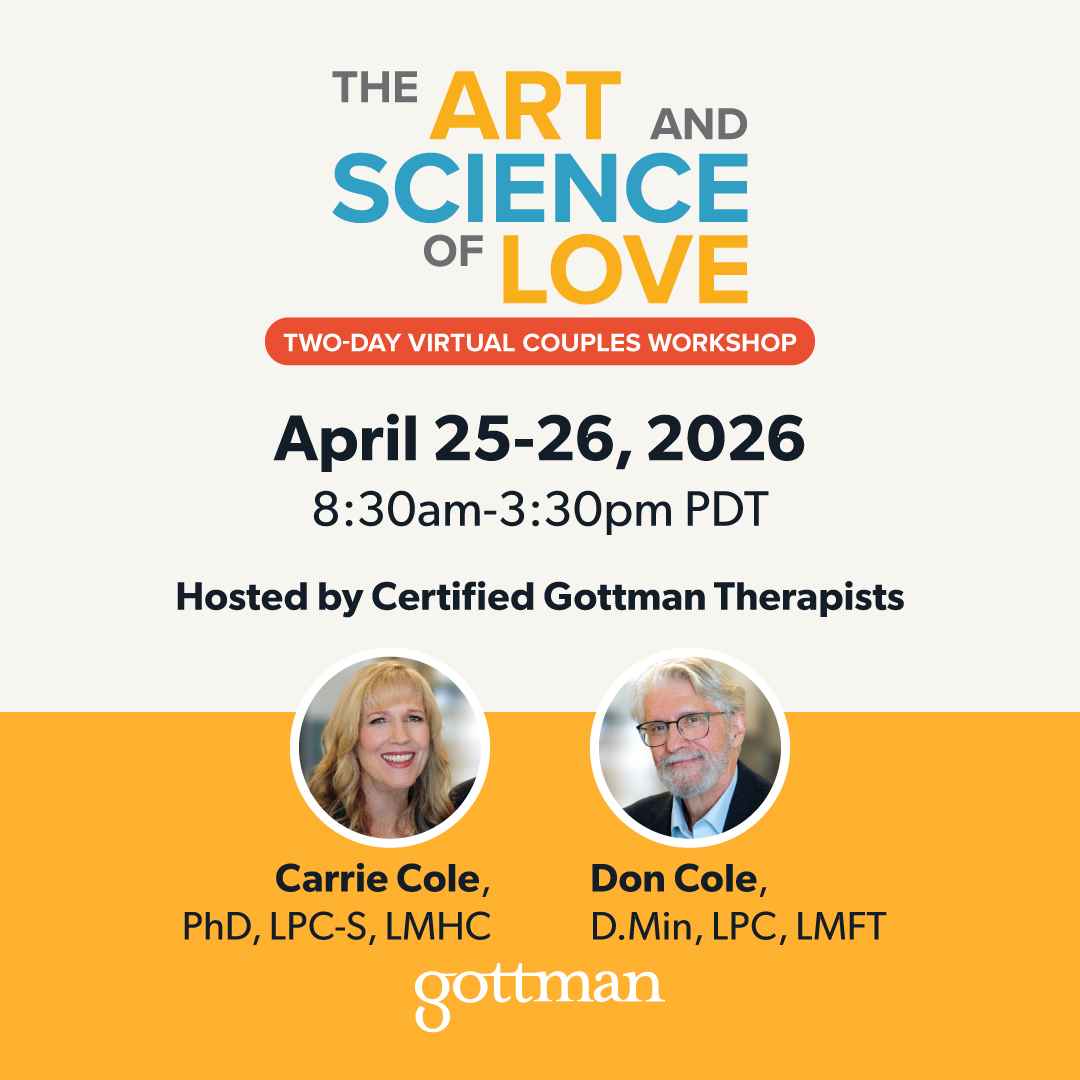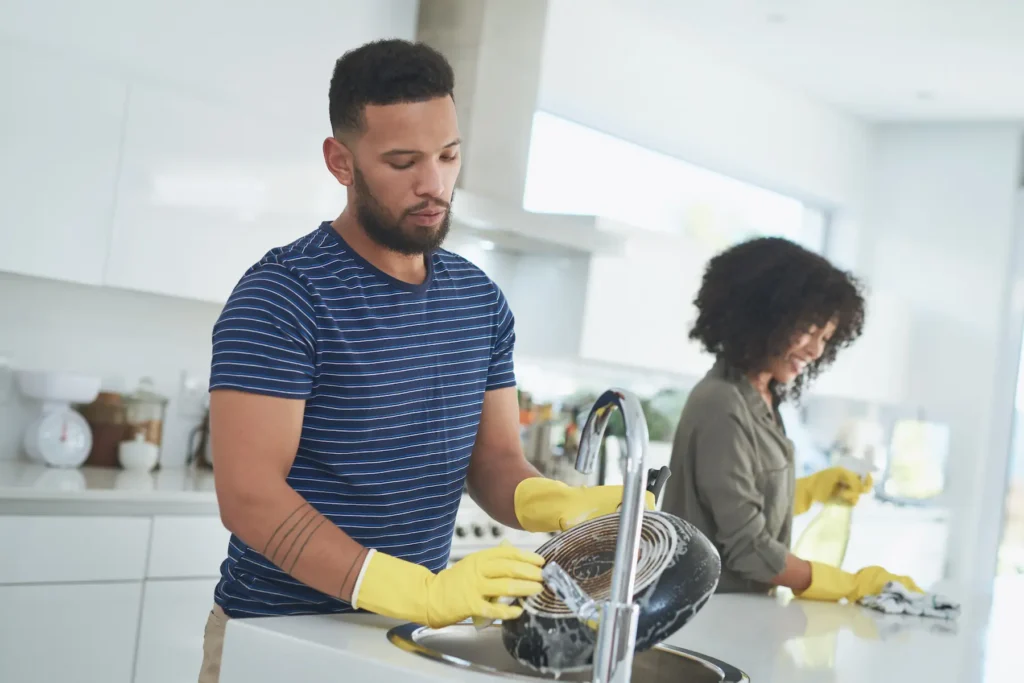We have all heard about feeling burnt out at work, but what about in your relationship? Workplace burnout usually signals it’s time to move on and find a new job, but does the same apply to your relationship?
When the connection that once felt effortless now feels distant or draining, you might be experiencing something couples rarely talk about: relationship burnout.
What is relationship burnout?
Relationship burnout can show up in many different ways and may be experienced by one or both partners. Here are some signs of burnout:
Constant feeling of overwhelm
Kids, work, and finances create busy lives. But when you are in a state of overwhelm more often than not, it likely signals something more than busy schedules. It may mean that you have lost your sense of ‘we-ness’ where you are no longer tackling life’s responsibilities as a team but as individuals.
Getting easily flooded during interactions with partner
Relationship conflict can cause stress and lead to flooding, but the majority of your interactions with your partner should not cause you to become flooded. You may have several unresolved conflicts and stuck problems, or you may anticipate conflict when you interact.
Negative sentiment override
When your partner doesn’t respond to a text, does your mind immediately think how inconsiderate they are? Do you find yourself criticizing your partner’s every move? You are likely in what Dr. John Gottman calls ‘Negative Sentiment Override’ when your brain defaults to expecting the worst from your partner. You interpret their actions, tone, and intentions negatively even when they are neutral or even positive. It is a dynamic that is easy to fall into when life stressors take over, and your emotional connection with your partner wanes.
Feeling alone
You may feel lonely even in the presence of your partner. This signifies a lack of emotional connection. Your relationship is not providing the support you need for your emotional wellbeing. You are no longer operating as a team but on your own.
Feeling like every conversation is ‘one more thing’ to deal with
Do you dread having conversations with your partner? Perhaps you find yourself putting off necessary conversations, or they feel like one more thing on your ‘to do list’. You may be so emotionally overloaded or fatigued that even small interactions feel like pressure vs connection.
Causes of Burnout
Chronic stress
When you experience chronic stress (from either inside and/or outside the relationship) your nervous system is in a heightened state. This can cause the following:
- Increased irritability and reactivity
- Lowered empathy
- Less energy to be emotionally available to your partner
- Increased conflict
- Decrease in physical wellbeing
Unresolved conflict within relationship
Gottman’s research tells us that 69% of relationship conflict can not be solved, so many couples get stuck in the same arguments that don’t go anywhere but rather leave both partners feeling upset, disconnected and frustrated.
One partner carrying the mental load
When one partner bears the weight of the mental load for the household and family, it can feel overwhelming and isolating. This responsibility typically falls on the female partner (regardless of whether she works outside the home), and because it is often ‘invisible labor’, it goes without acknowledgement and appreciation.
Running on autopilot
The relationship can feel transactional where any conversation between partners is about schedules and responsibilities. There is no effort to have emotional connection because it is not prioritized in the chaos of daily life. This usually goes hand in hand with a lack of emotional and physical intimacy which can further drive a couple apart.
Is It The End?
The short answer is NO! Unlike work burnout you are in control of many of the variables that are causing your relationship burnout. Burnout doesn’t mean your relationship is broken, it means it needs some attention and care. With small, consistent changes, couples can rebuild warmth, teamwork, and connection.
How to Recover from Relationship Burnout
Here are 8 strategies to recover from relationship burnout:
1. Self care
It can be difficult to prioritize your individual needs especially when they are so many other priorities in life. However, if you are not taking care of your physical and mental health, it will negatively impact your relationship. Self care might include taking time for mediation, daily walks, or anything else that helps you feel regulated and re-energized.
Pro tip: If there are things that you can do with your partner that satisfy your individual needs while you are together, that is the best case scenario. Walking the dog, going to the gym or taking a yoga class together are some examples.
2. New experiences
When you experience new things together, it can be very powerful, activating the brain’s reward system. This releases dopamine, which creates feelings of excitement, pleasure, and motivation. When partners experience this together, the brain starts to associate that good feeling with the relationship itself.
3. Rituals of connection
These are small but consistent interactions that keep partners feeling connected even during busy or stressful periods. They are intentional, repeated moments that are predictable and meaningful habits. They strengthen the “us” in the relationship.
- Morning check-in: Share one thing happening today and one way you can support each other.
- Partings and reunions: Kiss and hug goodbye, and greet each other warmly when reconnecting.
- Bedtime ritual: Develop a ritual even if you actually go to sleep at different times to connect.
- Consider their needs: When you go to the store, ask if they would like anything.
4. Notice the positive
Spend one evening only looking for the positive things your partner does. You may be surprised by what you find. The brain has a built-in tendency to notice, remember, and react more strongly to negative experiences than positive ones. It’s a survival mechanism, but in modern life and relationships it can create problems. When you notice the positive, tell your partner and express appreciation. Make a habit of doing this on a daily basis
5. Stress Reducing Conversation
Learn how to have this daily conversation to manage external stress. Research shows that happy successful couples do so on a regular basis. Set aside 20 minutes every day to share with one another how your day went. The purpose is to listen, empathize and provide emotional support. There is no problem solving, and you always take your partner’s side. Even if you don’t fully agree with them, you focus on how they feel and express understanding and support. The result is a sense of ‘we-ness’, that is you are operating as a team.
6. Manage conflict in a healthy way
When there are issues within your relationship that are bothering you, talk to your partner using a ‘gentle start-up’. This is where you express your feeling using an ‘I’ statement, followed by explaining the situation, and ending with what you need (stated in a positive way).
7. Share the mental load
Identify the responsibilities and load that exists. If it makes sense, transfer some of it to the other partner. Make sure to acknowledge and appreciate the invisible labor that is being done on a daily basis.
8. Repair
When (not if!) you say something hurtful, unkind, or inconsiderate to your partner acknowledge your mistake and make a genuine apology.
Relationship burnout is real, and while it feels like you’re stuck, it is possible to find your way back to each other. Ideally both partners will try to implement these strategies, but more often than not one person finds themselves taking on the responsibility of the relationship. You can still implement these changes, and likely your partner will follow. If you take these steps and do not feel any positive changes with your partner, you may need more support. Consider working with a therapist; sometimes a little support is what you need to make these significant shifts in your relationship dynamic.










2 Responses
My husband is distant and seems to have a foot out of the door. There is less “we” everyday…
Hi Hayley- This is a challenging situation, but if you are both committed to the relationship, it is possible to restore the connection and closeness beginning with renewing your friendship with each other. You may need the support of a therapist to go through this process.